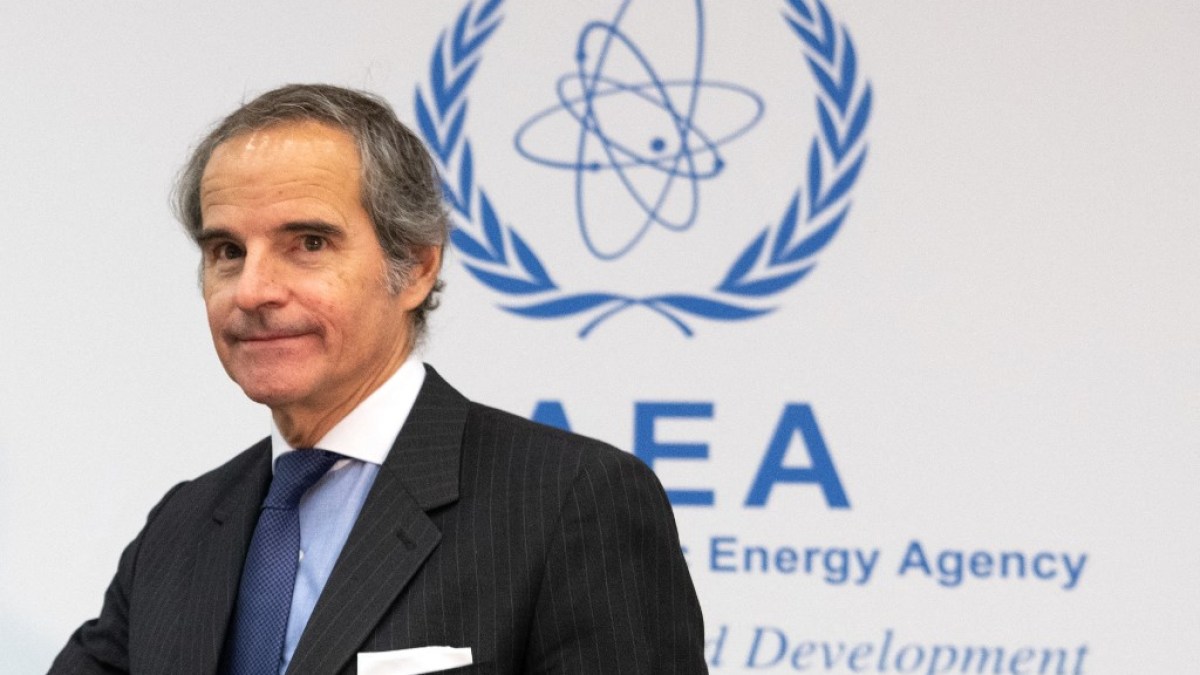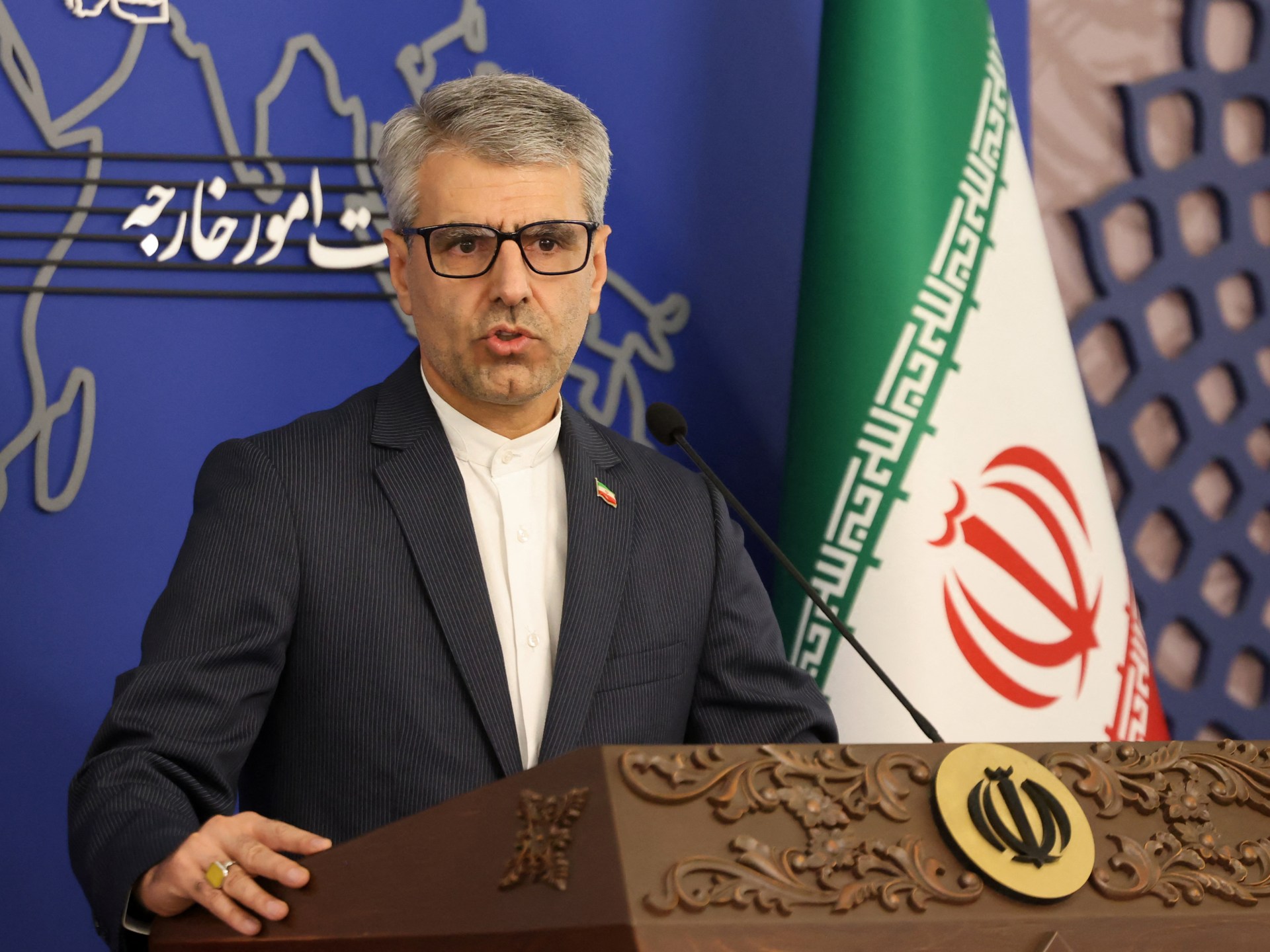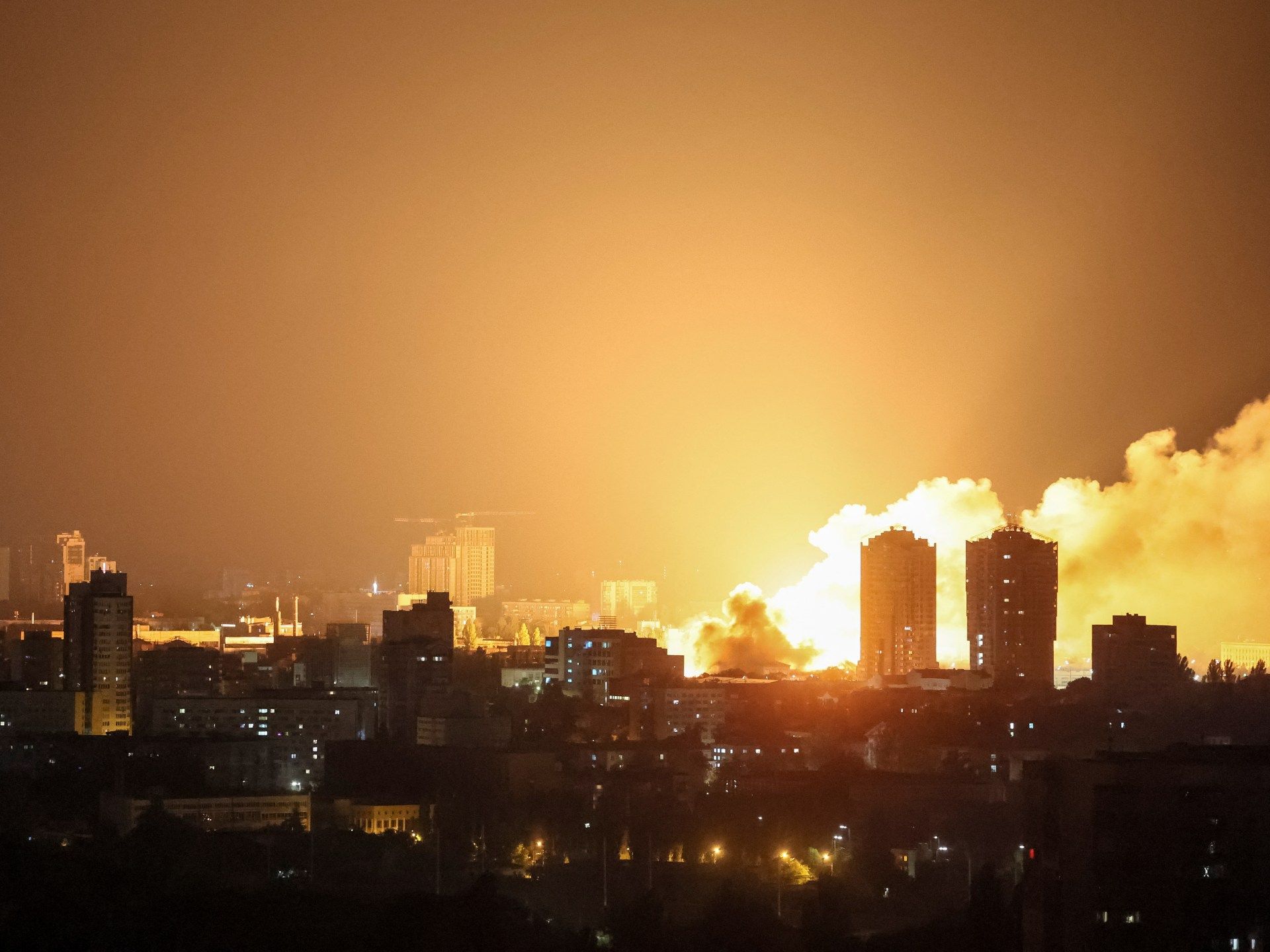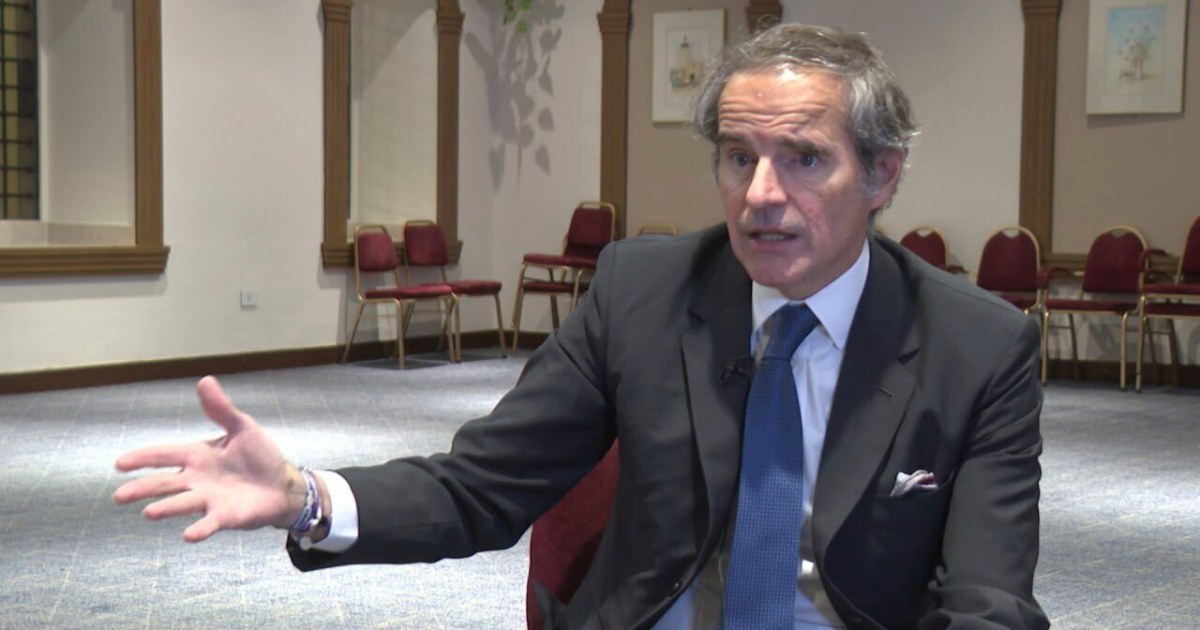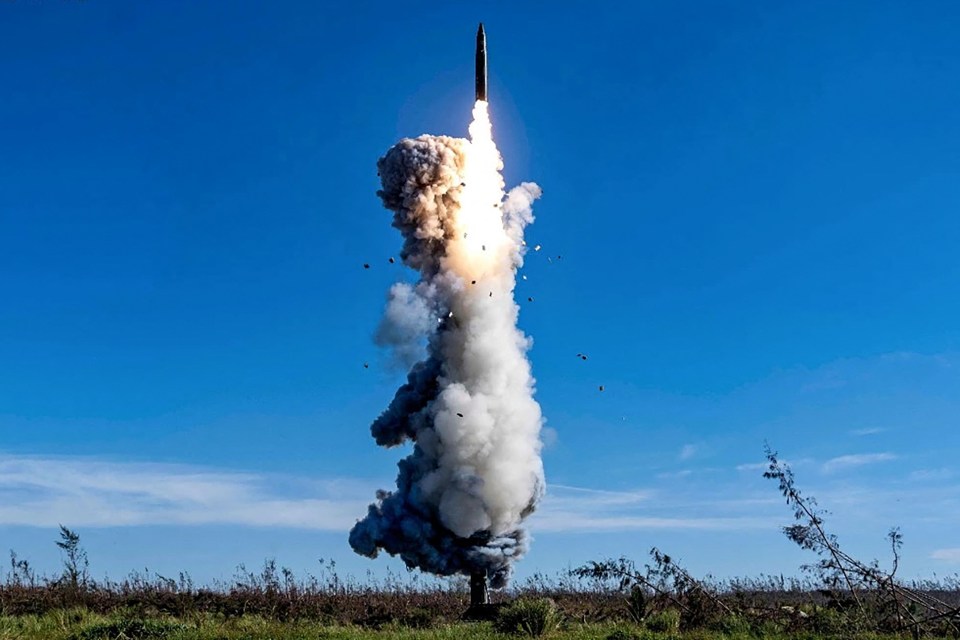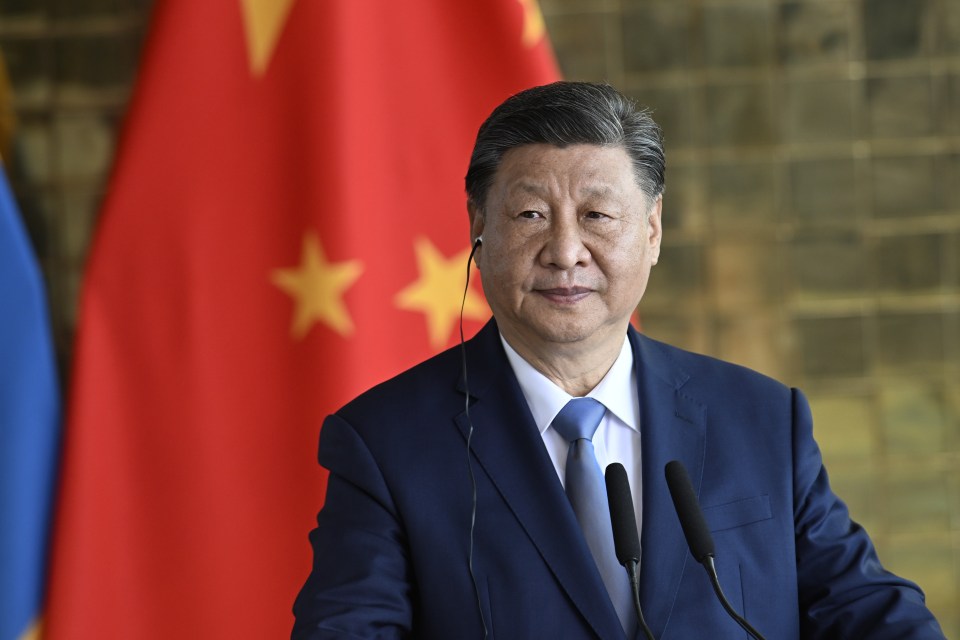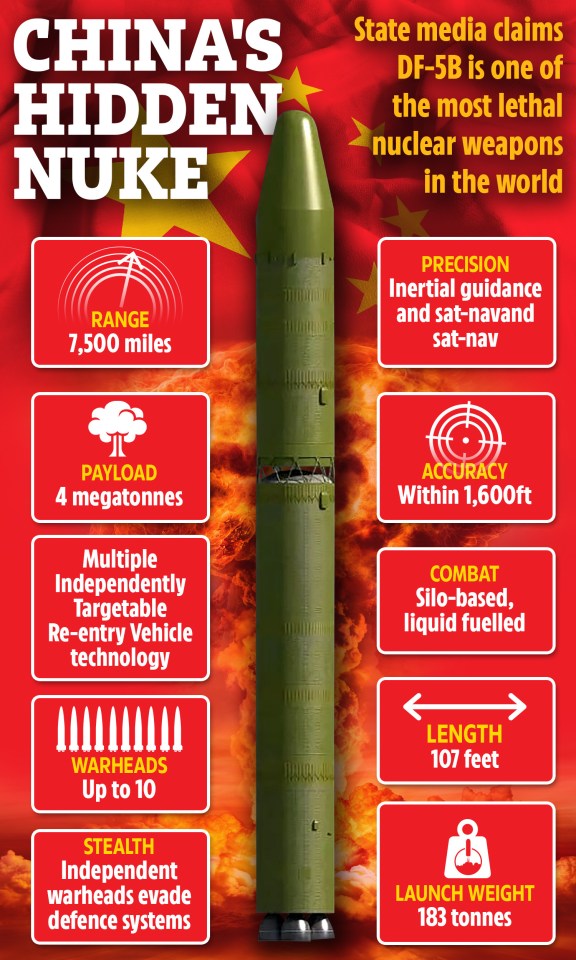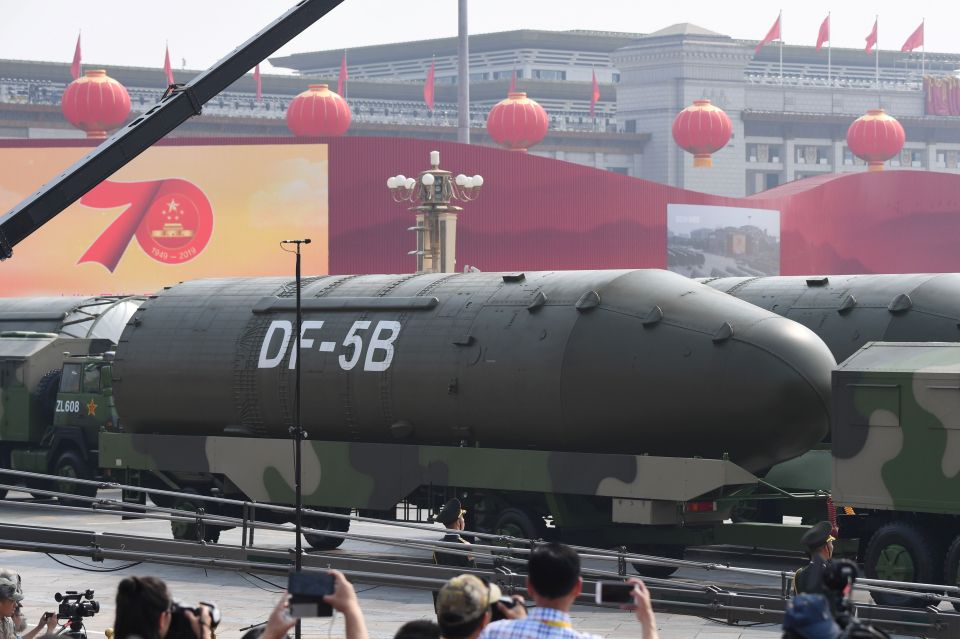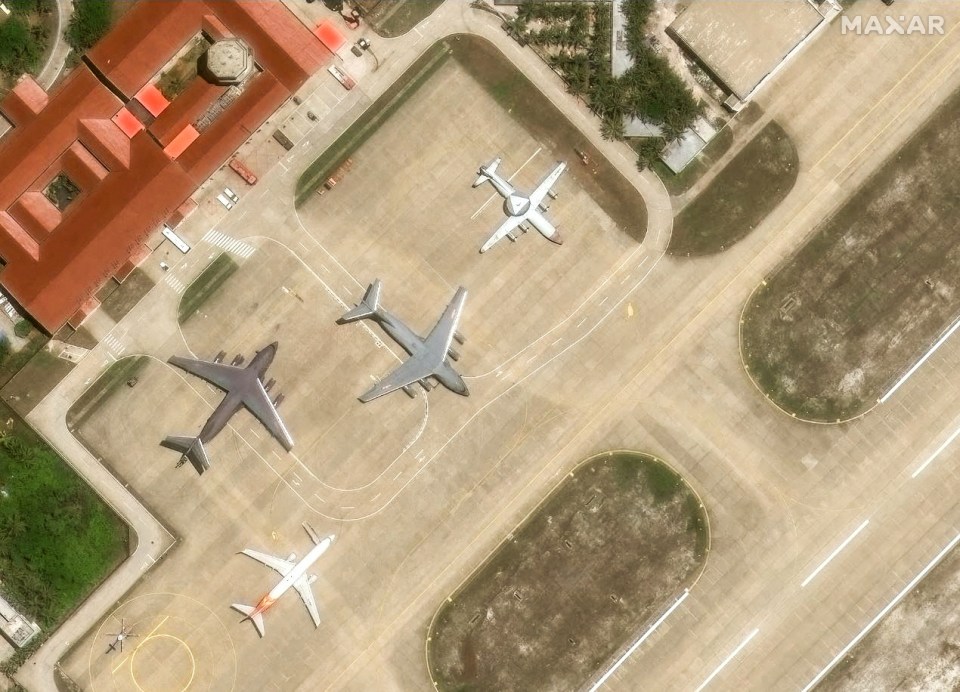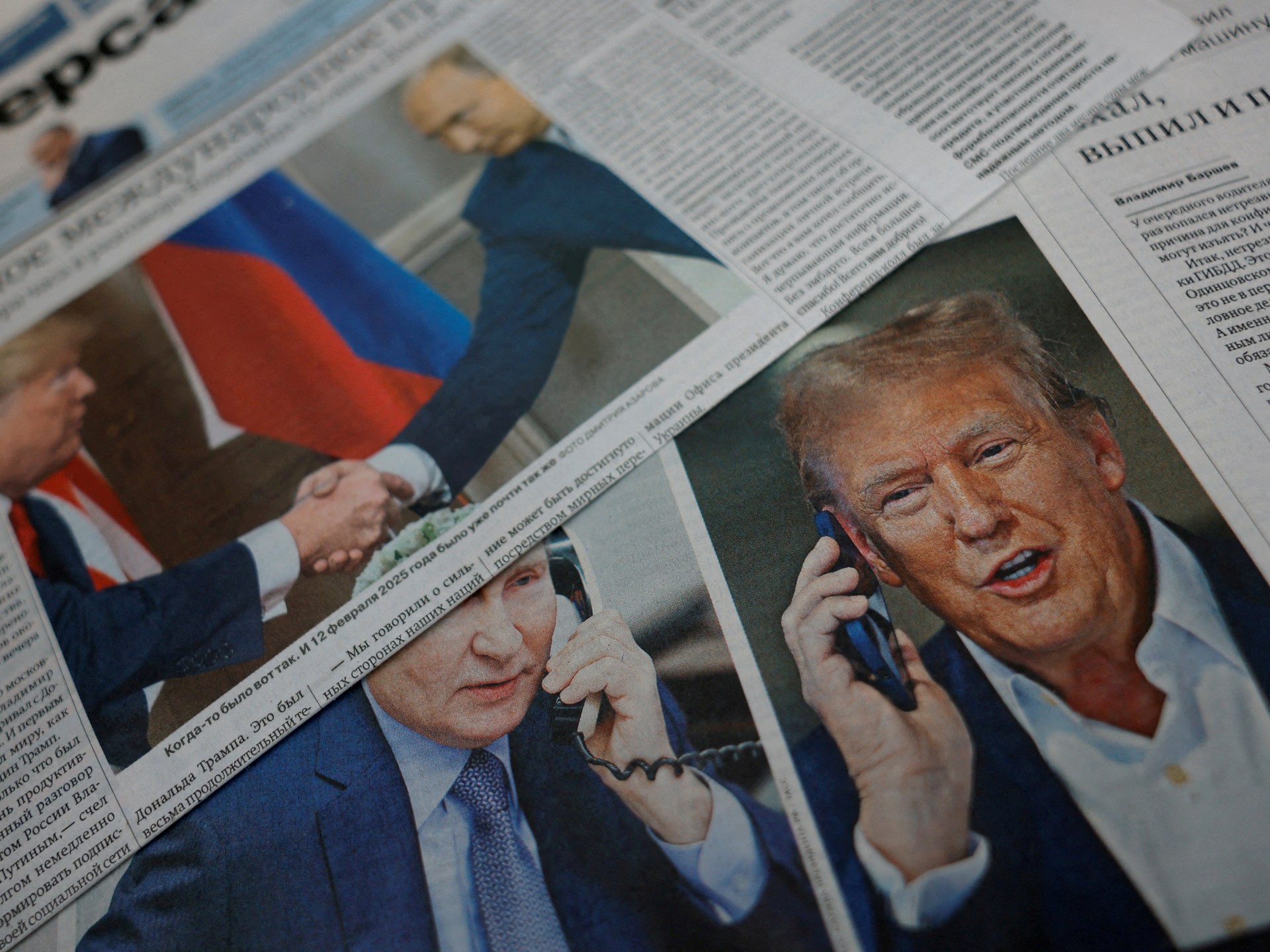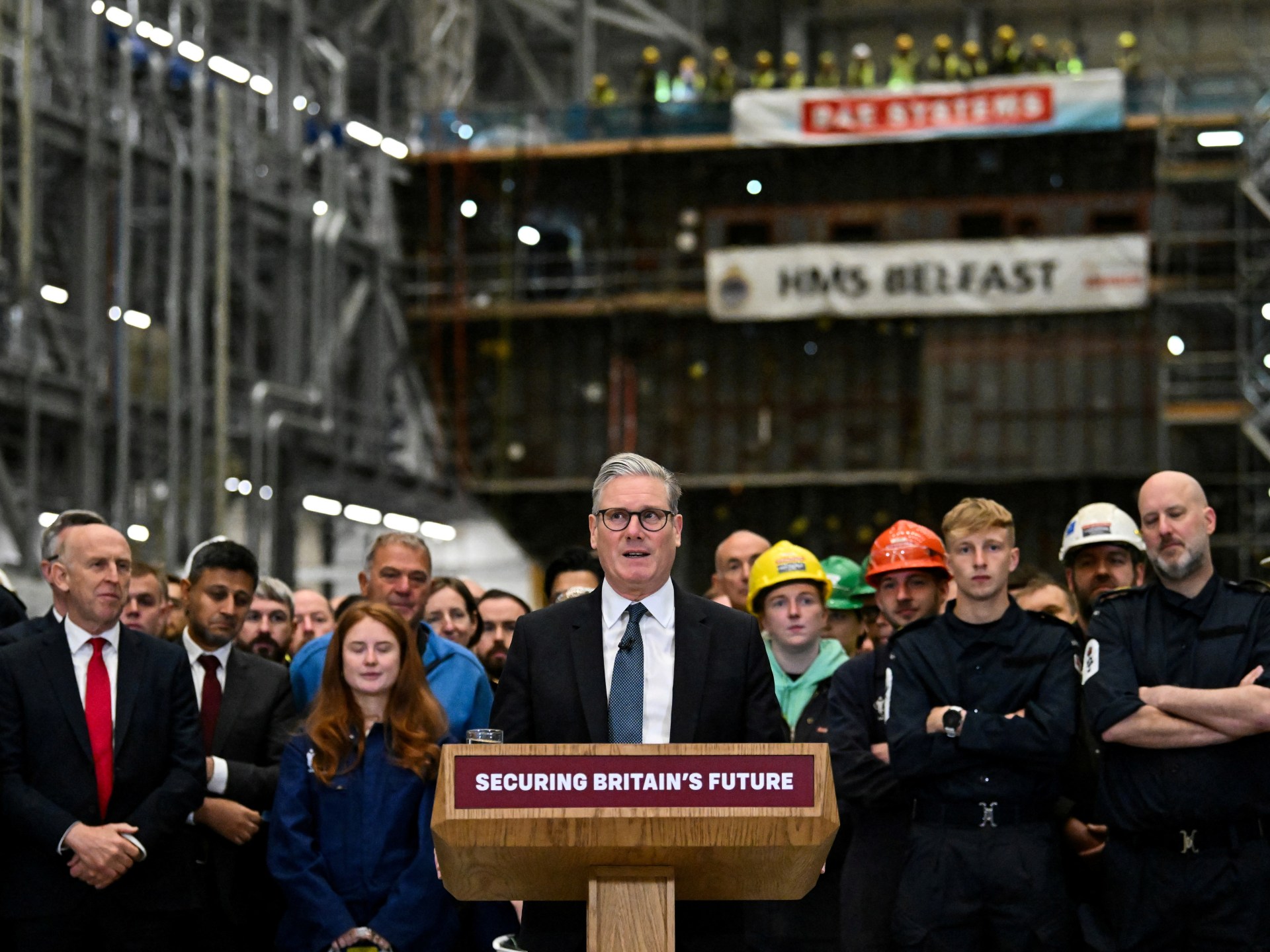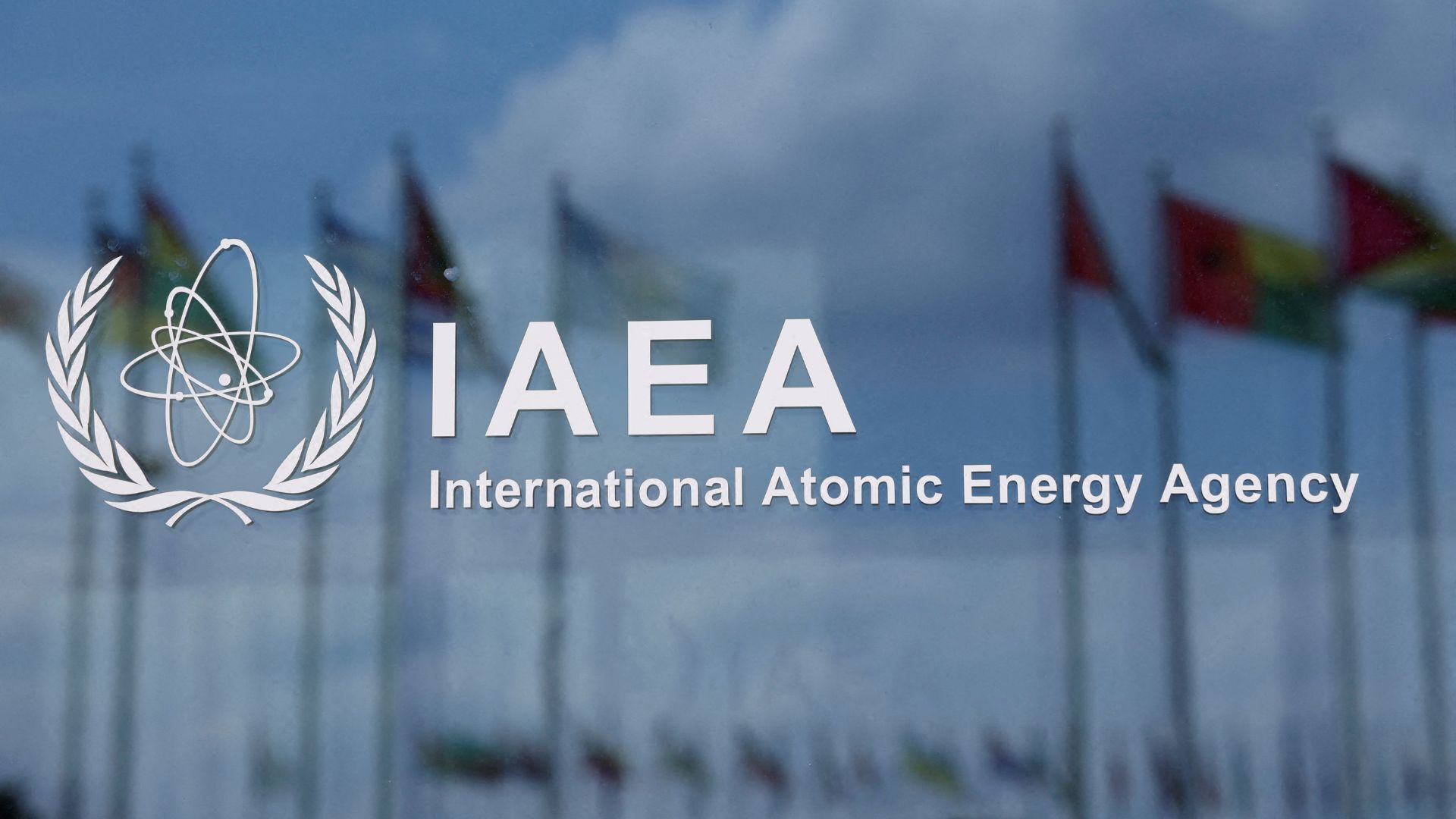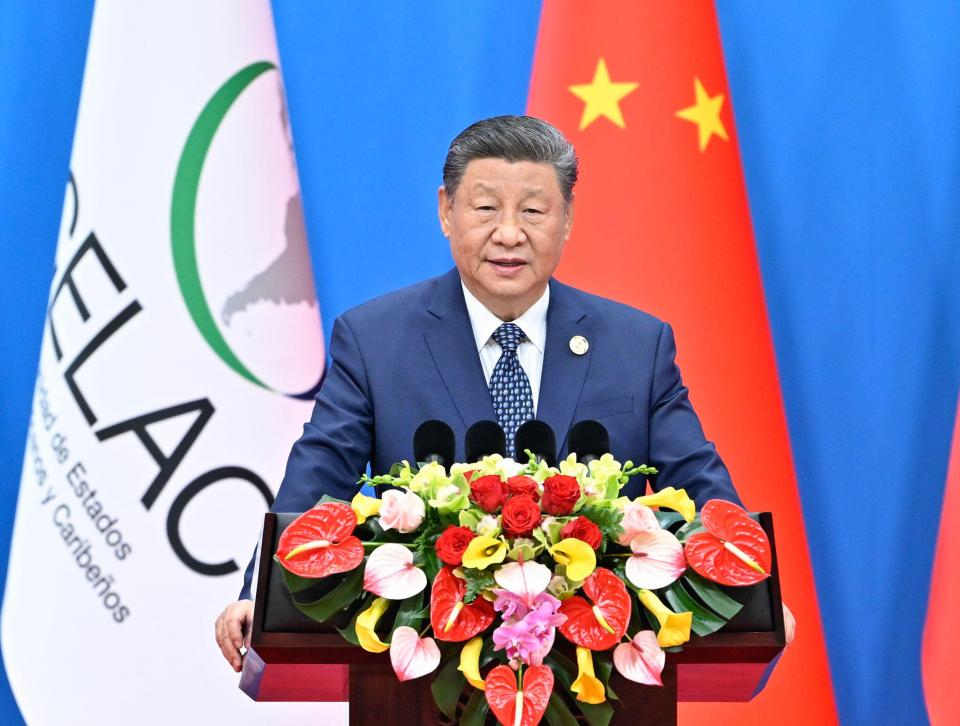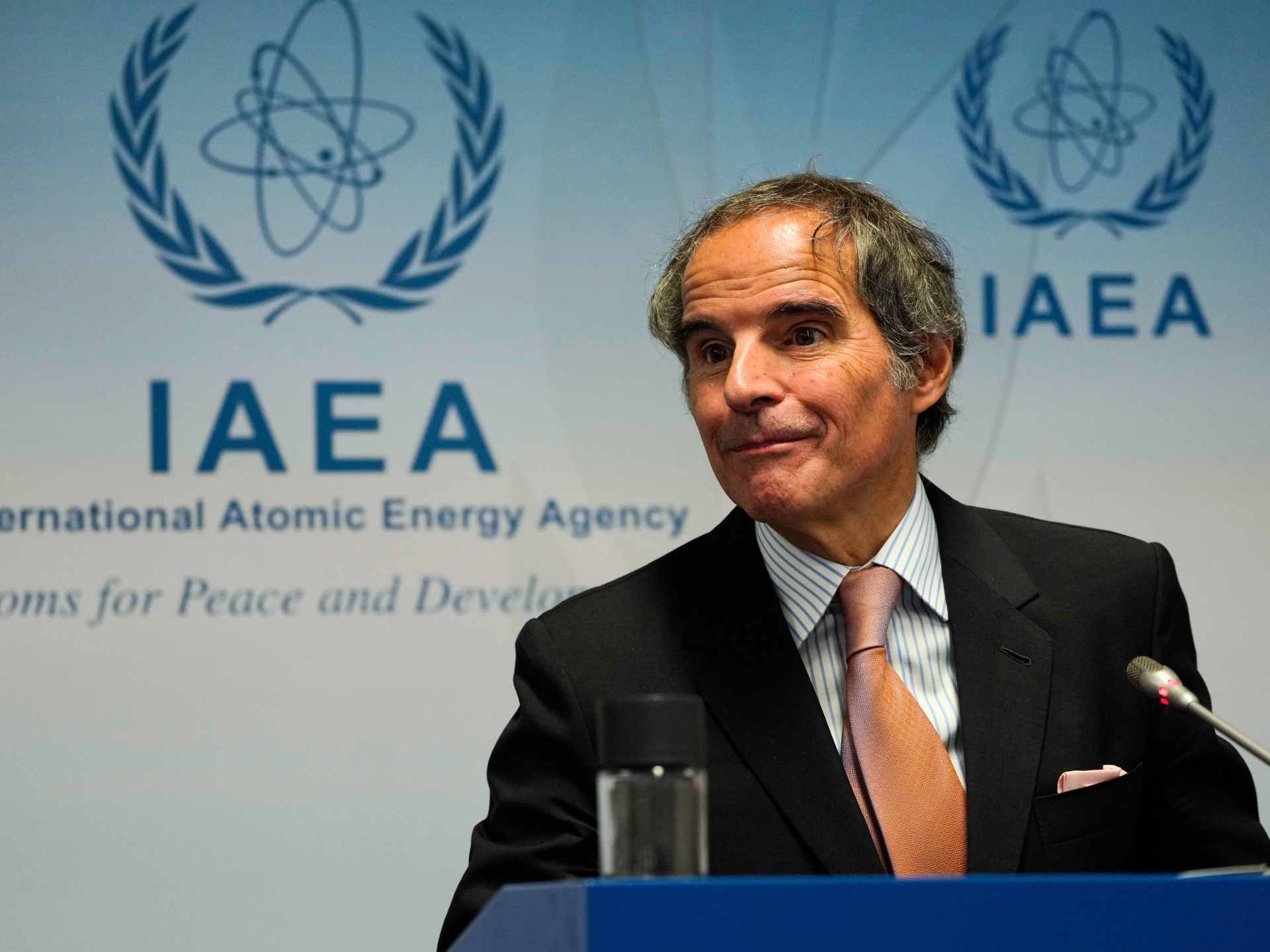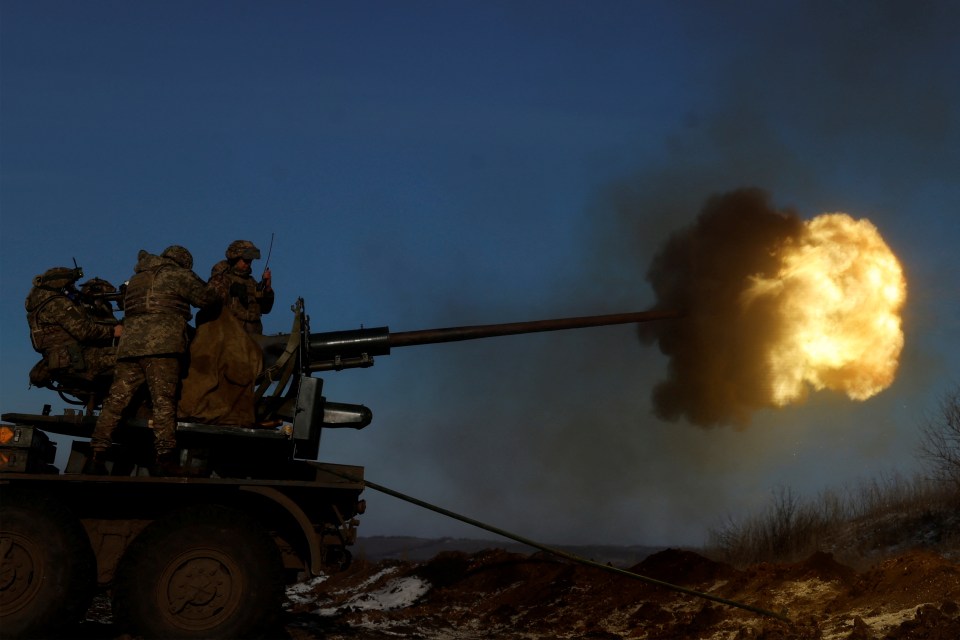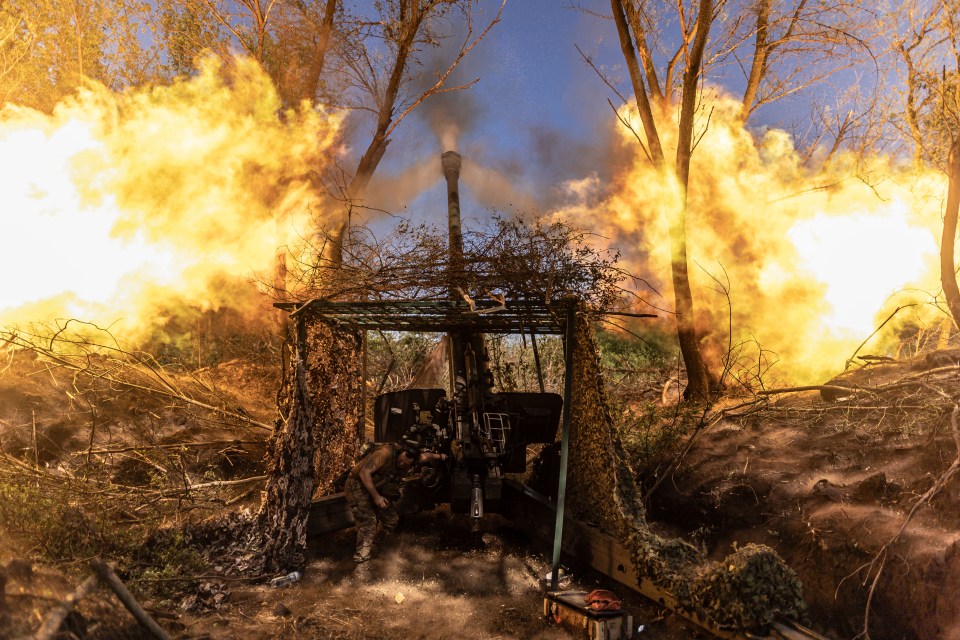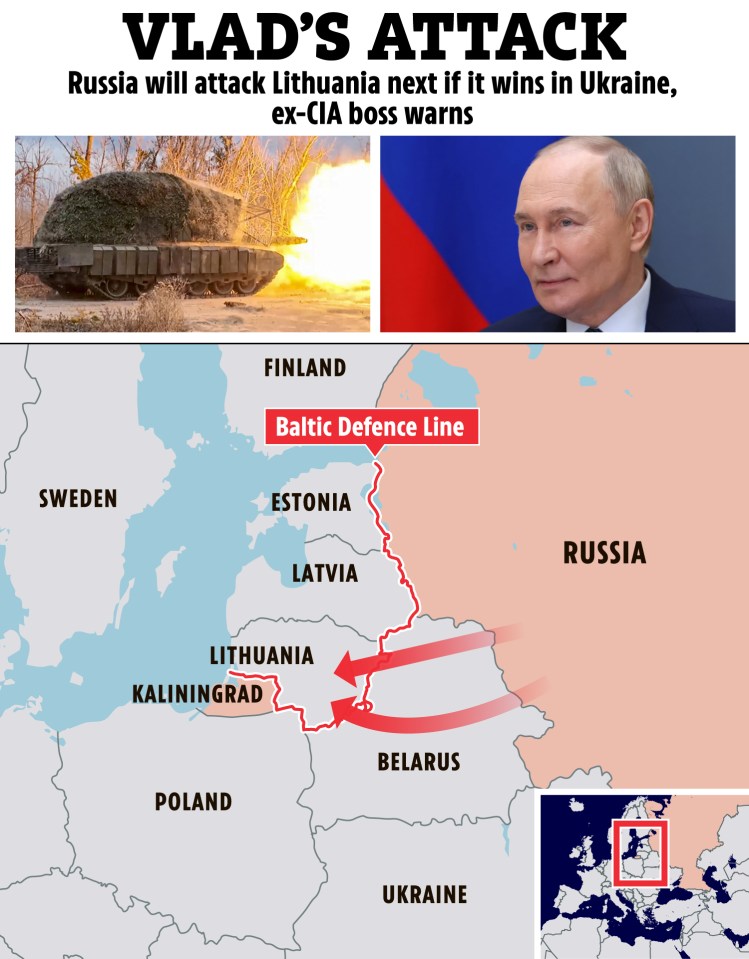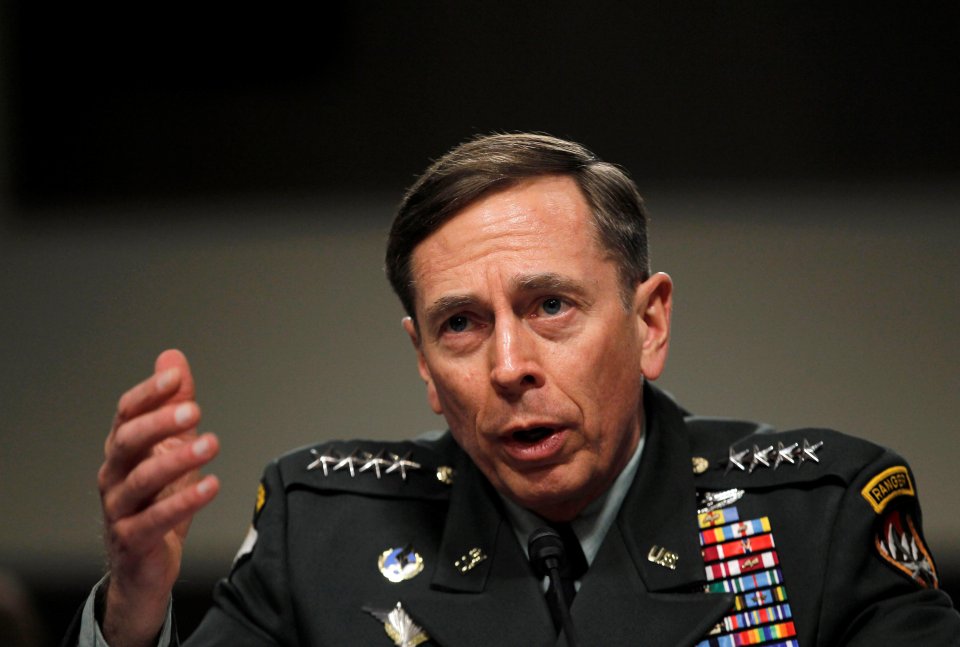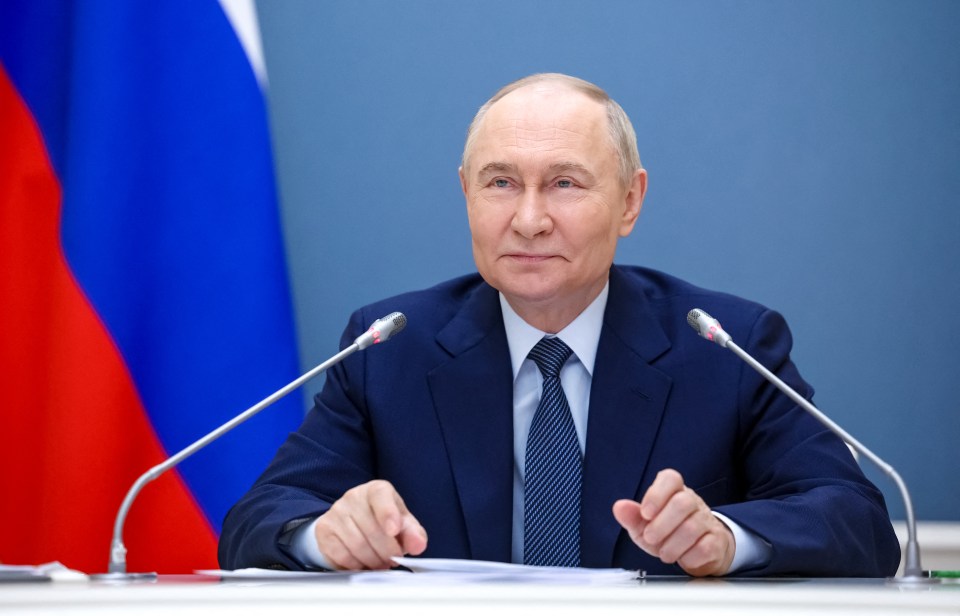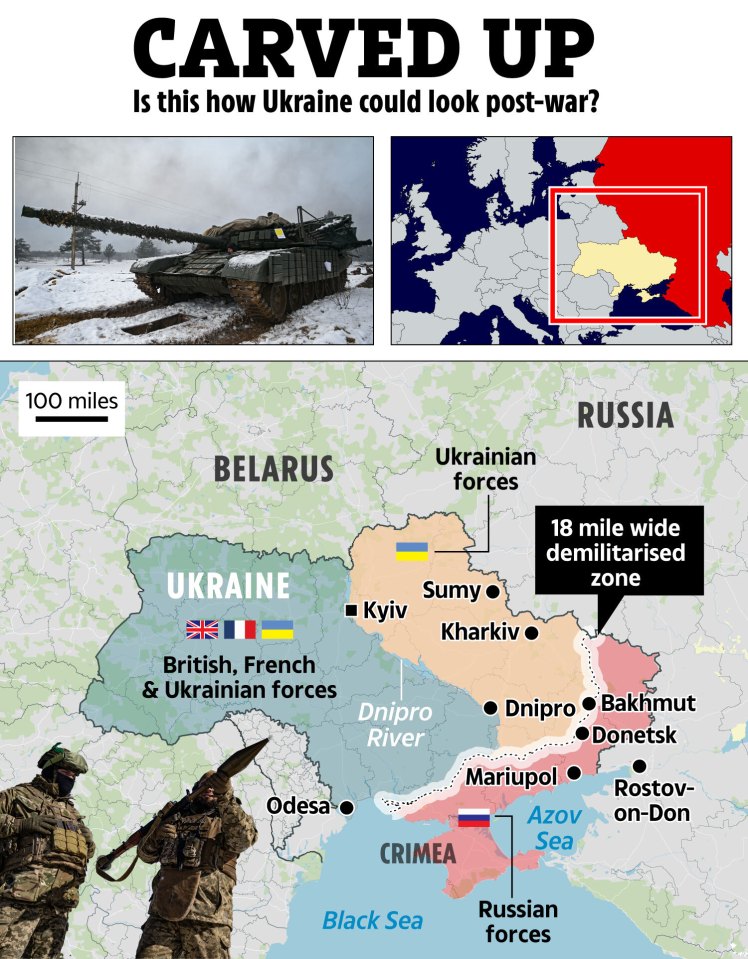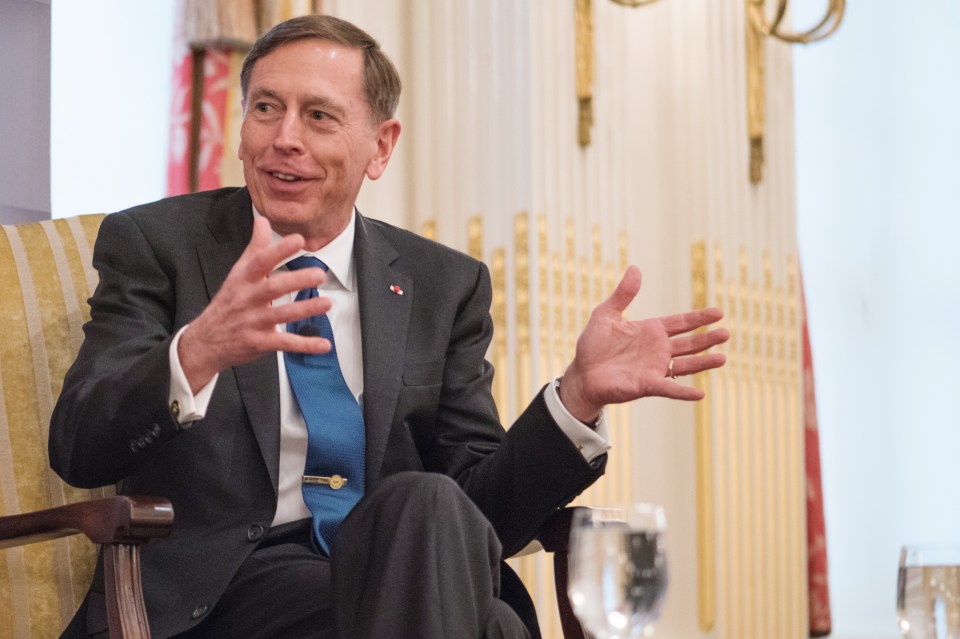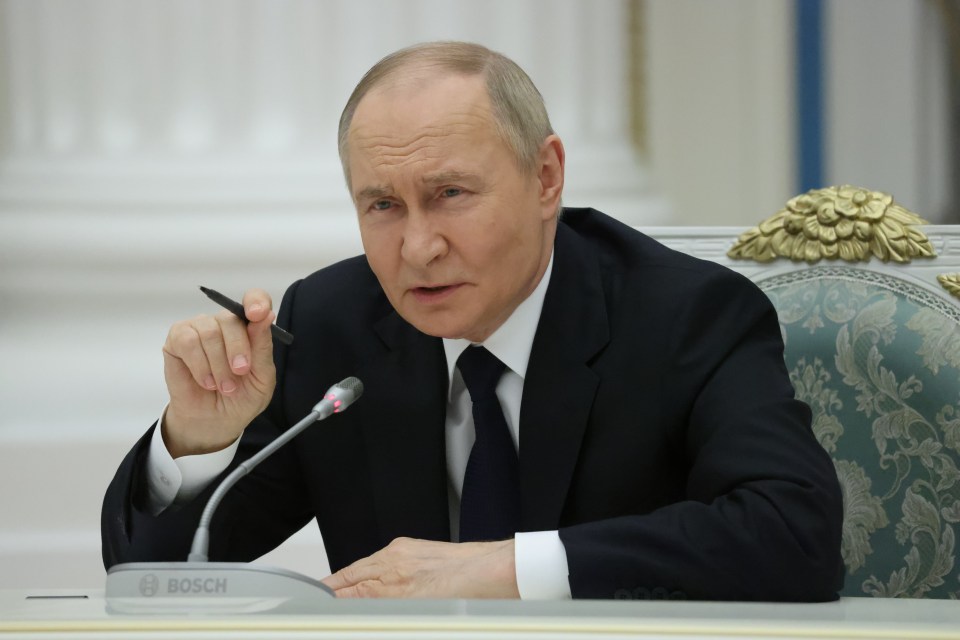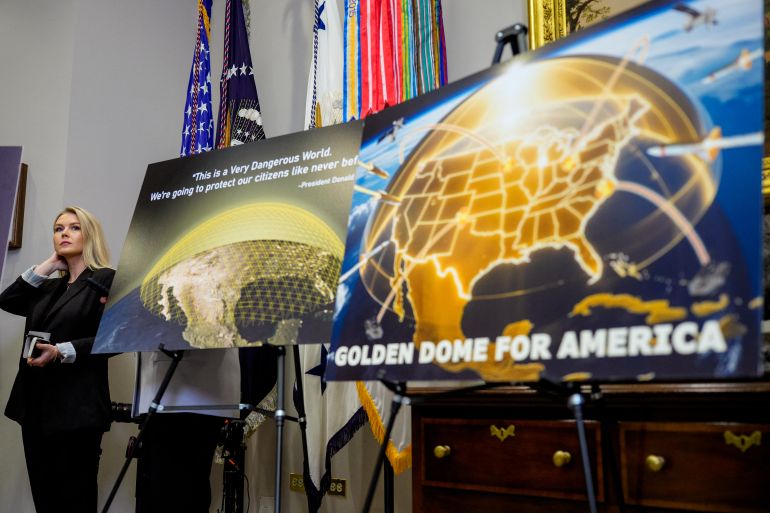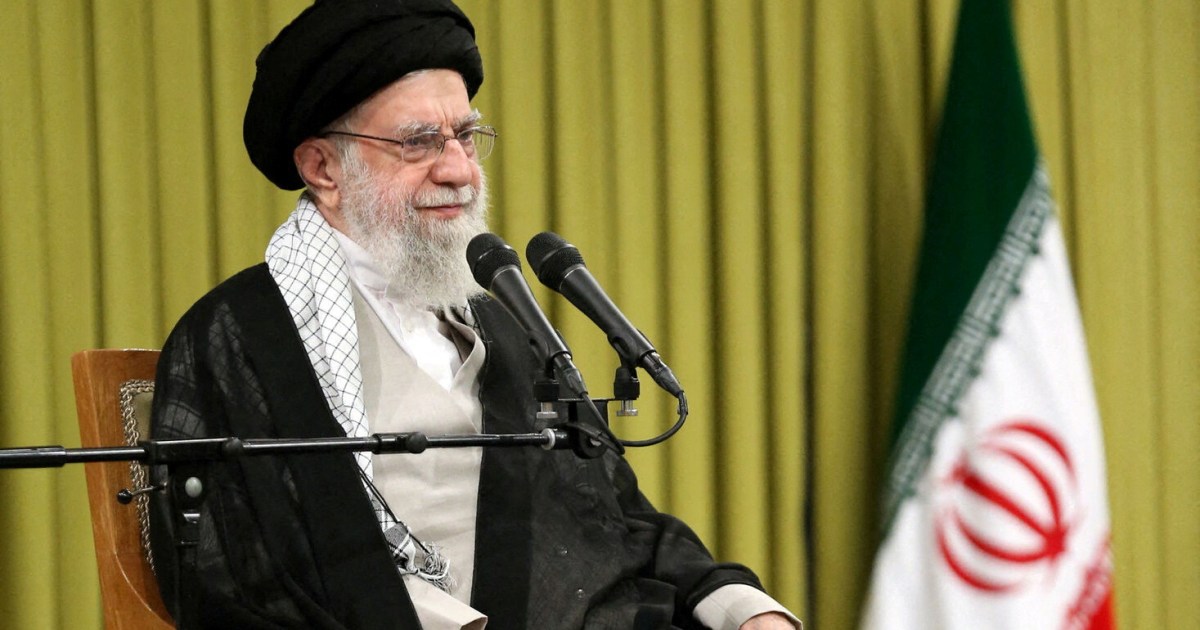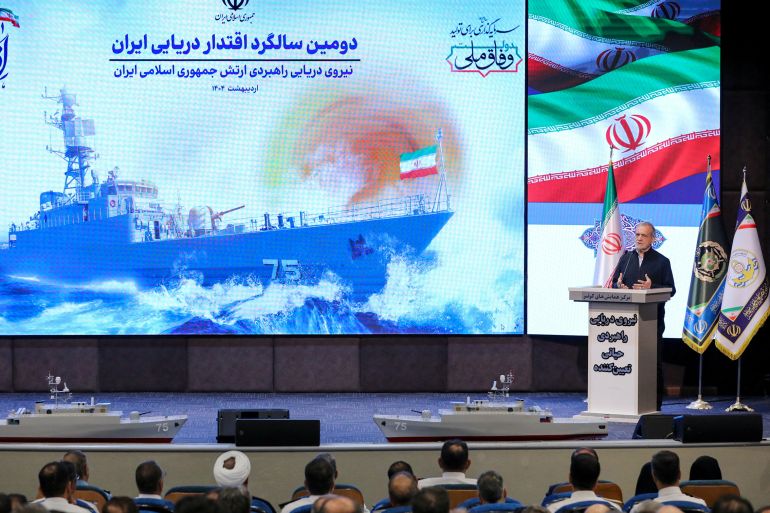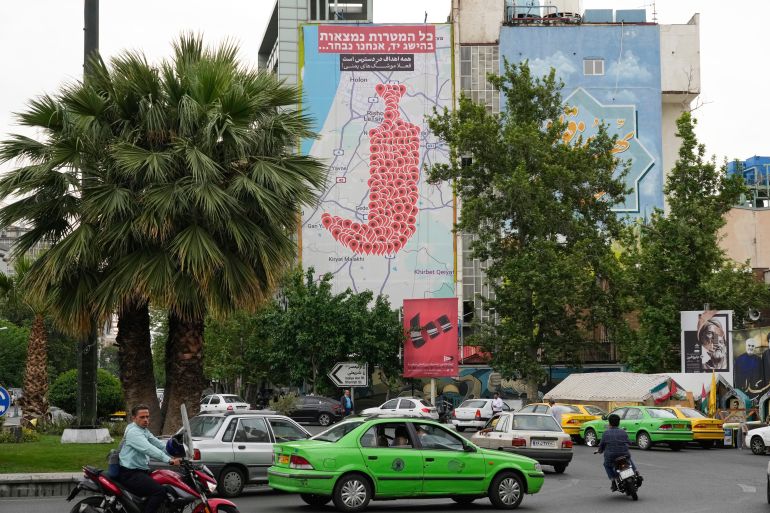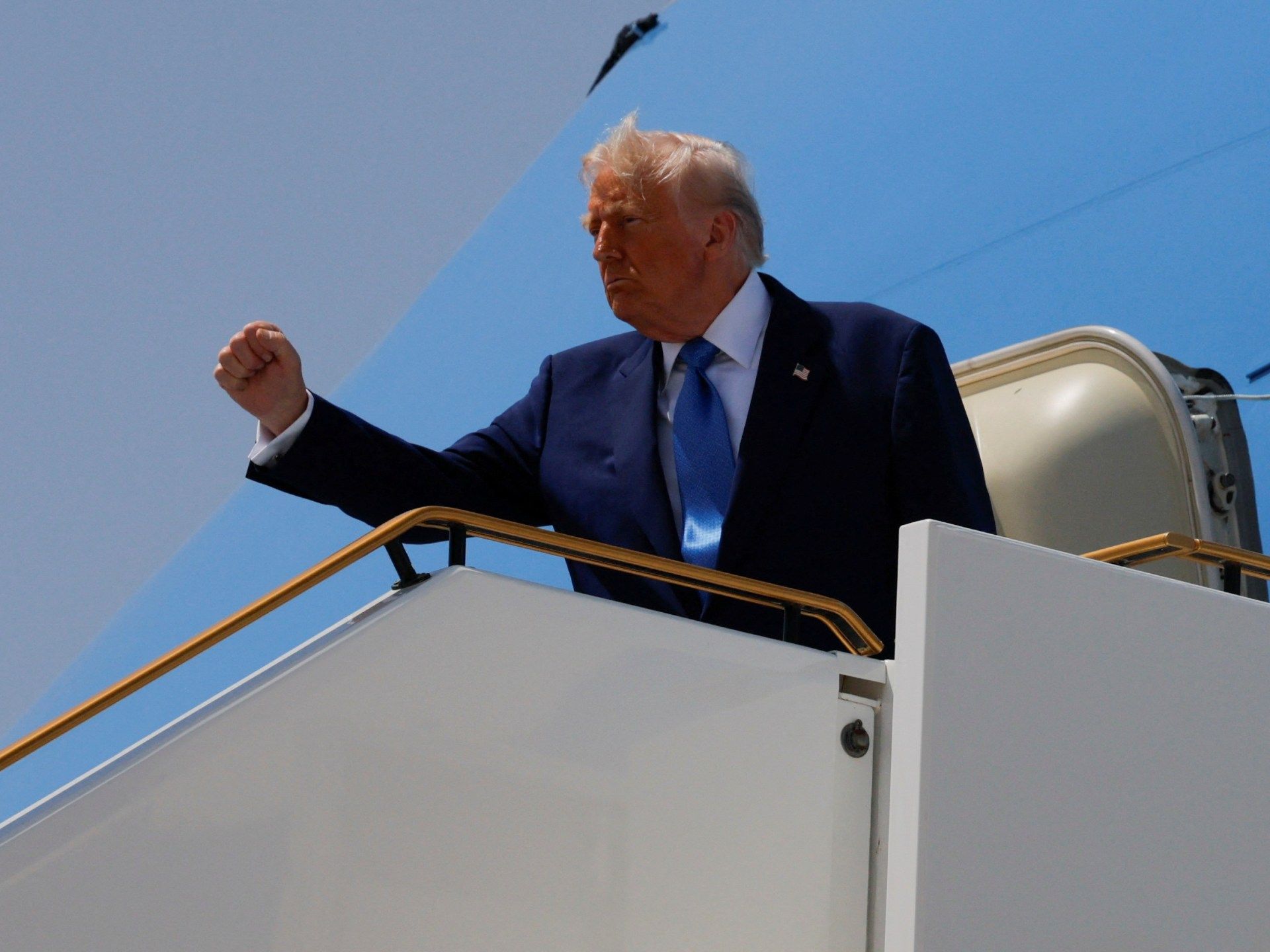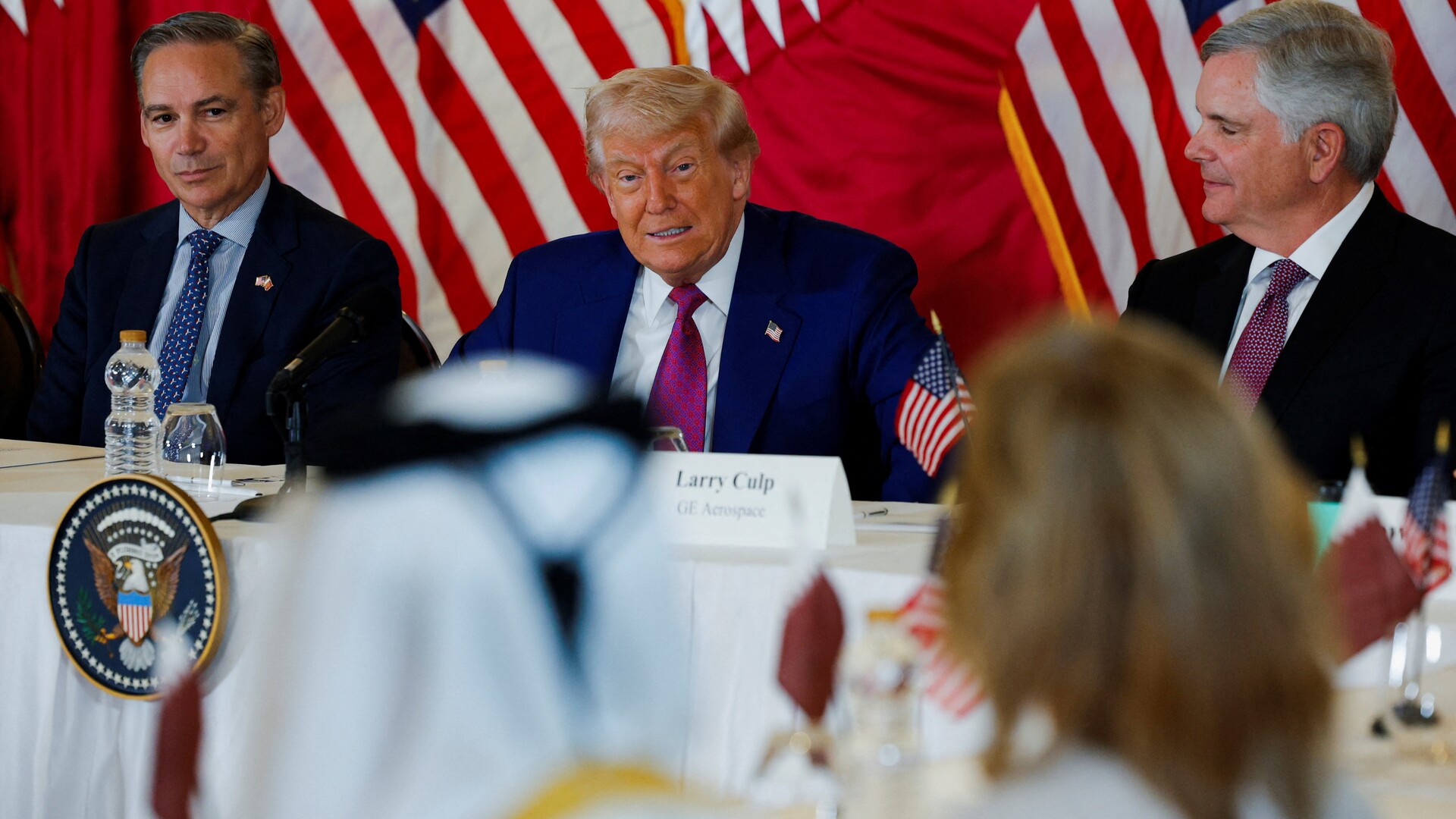The United Kingdom has announced a major investment in defence in response to a “new era of threats” driven by “growing Russian aggression”.
The UK’s Strategic Defence Review (SDR), unveiled on Monday, includes new investments in nuclear warheads, a fleet of new submarines and new munitions factories. Prime Minister Keir Starmer said the SDR would bring the country to “war-fighting readiness”.
“The threat we now face is more serious, more immediate and more unpredictable than at any time since the Cold War,” Starmer said as he delivered the review in Glasgow, Scotland.
The SDR described Russia as an “immediate and pressing” threat, and referred to China as a “sophisticated and persistent challenge”.
European nations have rushed to strengthen their armed forces in recent months, following Trump’s repeated demands that Europe must shoulder more responsibility for its security.
What are the key features of the UK’s Strategic Defence Review?
The defence review, the UK’s first since 2021, was led by former NATO Secretary-General George Robertson. Among the 62 recommendations in the SDR, all have been accepted by the government.
Starmer said the measures recommended in the review would bring “fundamental changes” to the armed forces, including “moving to war-fighting readiness”, re-centring a “NATO first” defence posture and accelerating innovation.
“Every part of society, every citizen of this country, has a role to play because we have to recognise that things have changed in the world of today,” he said. “The front line, if you like, is here.”
Boosting weapons production and stockpiles
Based on the recommendations in the review, the government said it would boost stockpiles and weapons production capacity, which could be scaled up if needed.
A total of 1.5 billion pounds ($2bn) will be dedicated to building “at least six munitions and energetics factories”, with plans to produce 7,000 long-range weapons.
In turn, UK ammunitions spending – just one component of overall military spending – is expected to hit 6 billion pounds ($8.1bn) over the current parliamentary term, which ends in 2029.
New attack submarines
There are also plans to build up to 12 new attack submarines by the late 2030s as part of the AUKUS military alliance with Australia and the United States – equivalent to a new submarine every 18 months.
This accounts for nearly half the projected spending outlined in the SDR.
Meanwhile, the Ministry of Defence (MoD) also said it would invest 15 billion pounds ($20.3bn) in its own nuclear warhead programme.
New F-35 fighter jets
The SDR recommended procuring new F-35 fighter jets and the Global Combat Aircraft Programme, a sixth-generation fighter produced jointly with Japan and Italy.
Use of technology to improve the army
The target size of the army will remain roughly the same, but the SDR recommended a slight increase in the number of regular soldiers “if funding allows”. There are currently about 71,000.
Instead of a dramatic increase in troop numbers, the SDR recommends using technology, drones and software to “increase lethality tenfold”.
To do this, the MoD plans to deliver a 1 billion pound ($1.35bn) “digital targeting web”, an AI-driven software tool designed to collect battlefield data and use it to enable faster decision making.
Investment in defence companies
More details about the SDR will be provided in the upcoming Defence Industrial Strategy, expected in the coming weeks, but UK defence companies will be among the big winners from the new SDR.
Though supposedly a 10-year review, past SDRs suggest its shelf life might be more limited.
The last SDR was published in 2021 and recommended “a strategic pivot towards the Indo-Pacific region to counter China’s influence and deepen ties with allies like Australia, India, and Japan”, in line with strategic priorities of the time.
This SDR, undertaken in the wake of Russia’s full-scale invasion of Ukraine, has re-oriented the UK’s geographical priorities. In the coming years, those could change again.
Can the UK afford this defence expansion?
Proposals to prepare the UK’s armed forces to be “battle ready” will cost at least 67.6 billion pounds ($91.4bn) through to the late 2030s, according to costings and estimates provided in the SDR.
Before Monday’s announcement, the government had already pledged to increase spending on defence from 2.3 percent currently to 2.5 percent by 2027, an increase of about 6 billion pounds ($8.1bn) per year. This would raise 60 billion pounds over 10 years – a bit shy of the cost projected by the SDR.
The government has said it will cut overseas aid to fund that 0.2 percent of gross domestic product (GDP) rise in defence spending.
Critics say this will not be enough and that the measures outlined by the SDR will cost more like 3 percent of gross domestic product (GDP).
James Cartlidge, the shadow defence secretary, said the “authors of the strategic defence review were clear that 3 percent [not 2.5 percent] of GDP ‘established the affordability’ of the plan.”
In February, the Labour government said it had “an ambition” to raise defence spending to 3 percent in the next parliament (after 2029), but Cartlidge said: “That commitment cannot be guaranteed ahead of the next general election.”
According to researchers at the Institute for Fiscal Studies – an independent, London-based research organisation – raising defence spending to 3 percent of GDP by 2030 would require an extra 17 billion pounds between now and then, which the government has not yet accounted for.
But the UK could be required to raise spending even more than this. In discussions taking place in advance of the NATO summit in The Hague later this month, NATO Secretary General Mark Rutte is understood to be pushing for member nations to commit 5 percent of GDP towards defence-related spending.
Rutte has proposed that NATO’s 32 members commit to spending 3.5 percent on hard defence and 1.5 percent on broader security, such as cyber, by 2032.
“At this Ministerial, we are going to take a huge leap forward,” Rutte stated before a meeting of defence ministers in Brussels on Thursday this week. “We will strengthen our deterrence and defence by agreeing ambitious new capability targets.” He specified air and missile defence, long-range weapons, logistics, and large land manoeuvre formations as among the alliance’s top priorities, according to a briefing note from NATO on Wednesday.
“We need more resources, forces and capabilities so that we are prepared to face any threat, and to implement our collective defence plans in full,” he said, adding: “We will need significantly higher defence spending. That underpins everything.”
Will taxes have to rise in the UK?
On Monday, Starmer refused to rule out another raid on the aid budget to fund higher military spending, and signalled that he was hopeful the extra investment could be supported by a growing the economy and generating more taxes to pay for defence.
After the SDR’s announcement, Paul Johnson, director of the Institute for Fiscal Studies, warned that the prime minister will need to make “really quite chunky tax increases” to pay for the plans.
Alternatively, increased defence spending could be siphoned off from other parts of the budget – for instance, through reduced state spending on areas like transport and energy infrastructure.
